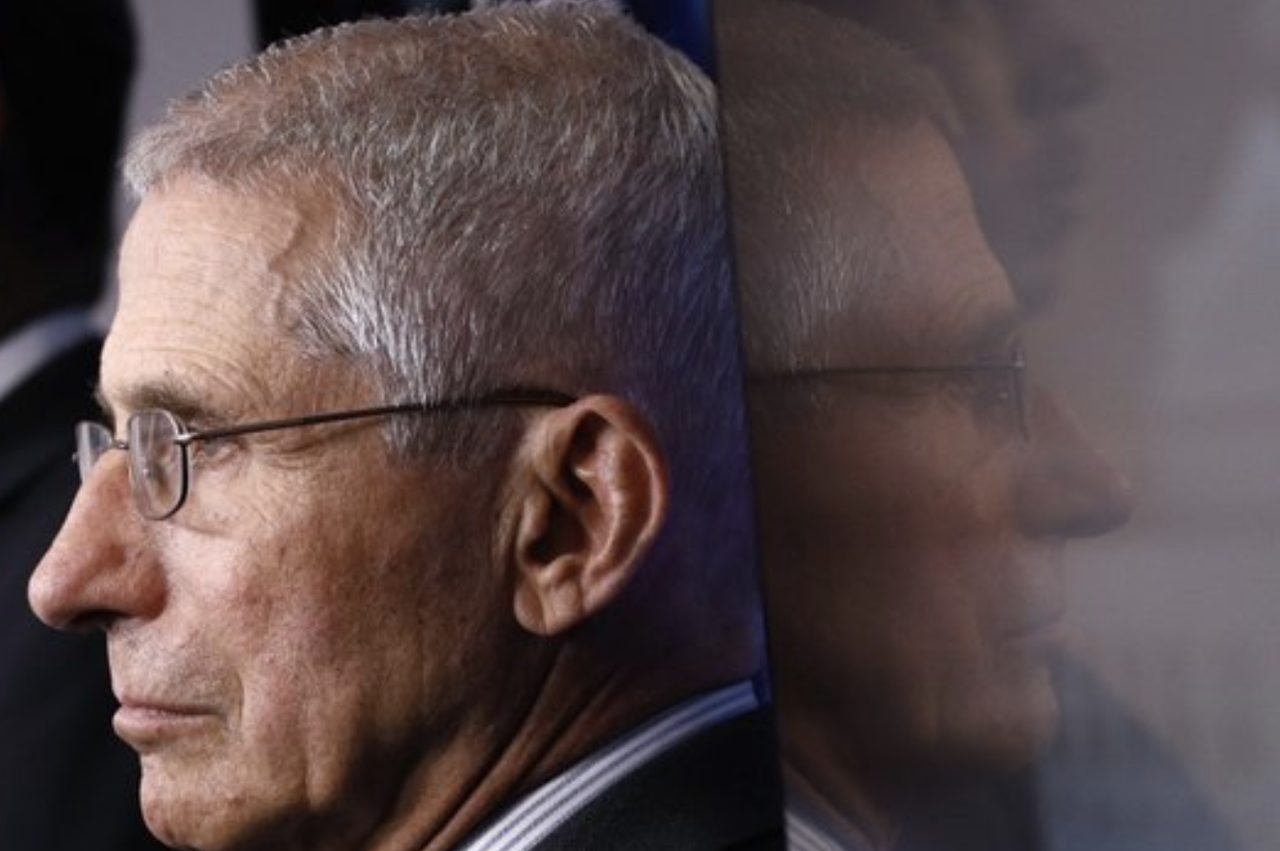Dr. Fauci Says Reopening Economy By May “A Bit Overly Optimistic”, Contradicting Trump Again
In what appears to be the second time in as many days that Dr. Anthony Fauci has contradicted the president in a media interview, the good doctor reportedly told the Associated Press that he felt May 1, President Trump’s latest ‘target date’ is “a bit overly optimistic.”
Again, even though Dr. Fauci chose probably the gentlest terms possible to politely disagree with the May 1 timeline, the press will almost certainly twist his comments into a full-throated condemnation of the president. Dr. Fauci added that of course any reopening would have to take place on a rolling basis.
Fauci said a May 1 target is “a bit overly optimistic” for many areas of the country. Any easing off the strict social-distancing rules in place in much of the country would have to occur on a “rolling” basis, not all at once,” he said, reflecting the ways COVID-19 struck different parts of the country at different times.
Once reopening begins, it will inevitably reignite the spread of the virus. The question is: can the US ramp up testing and contact tracing fast enough to contain these second-wave cases? Dr. Fauci said states don’t yet have enough tests in circulation. While new infections are almost guaranteed, “it’s how you deal with [them] that is going to count,” Dr. Fauci said.
Among Fauci’s top concerns: that there will be new outbreaks in locations where social distancing has eased, but public health officials don’t yet have the capabilities to rapidly test for the virus, isolate any new cases and track down everyone that an infected person came into contact with.
“I’ll guarantee you, once you start pulling back there will be infections. It’s how you deal with the infections that’s going count,” Fauci told the AP.
Key is “getting people out of circulation if they get infected, because once you start getting clusters, then you’re really in trouble,” he added.
During an interview on Tuesday, Gov. Cuomo joined the chorus of critics slamming President Trump’s daily press briefings, even Dr. Fauci offered some indication that he’s growing weary of the marathon sessions – last night’s ran for 2.5 hours – even though he believes keeping the public informed is important.
Fauci said his public role is important but conceded that the duration of those briefings – Monday’s ran for nearly two-and-a-half hours – was “really draining” and that doesn’t even count preparation and waiting for it to start.
“If I had been able to just make a few comments and then go to work, that would have really been much better,” he said. “It isn’t the idea of being there and answering questions, which I really think is important for the American public. It’s the amount of time.”
Ideally, Dr. Fauci said, the reopening of the economy can be eased with simple tests showing whether an individual possesses antibodies for the virus. While those who were infected, in theory, should have the highest levels of antibodies, individuals who were merely exposed to the virus, and whose bodies fought it off before infection could occur, should also test ‘antibody positive’, meaning they have a level of immunity to the virus.
However, there have been signs that these tests – which Dr. Fauci is focused on fine-tuning – aren’t nearly accurate enough for the US to depend on them.
Much of Fauci’s time outside of the White House briefing room is focused on analyzing progress on blood tests that aim to tell who was exposed to the coronavirus — whether they knew they were sick or not — by spotting antibodies their immune system formed to fight back. Those tests will be crucial in determining when and how people can go back to work.
The problem: Most of the tests have not yet been proven to work well, Fauci cautioned. He noted that some countries bought millions of antibody tests only to learn they didn’t work.
Fauci, infectious disease chief at the National Institutes of Health, said his staff is working with the Food and Drug Administration to validate those tests. That means proving what level of antibodies it takes to really be immune; if particular types of antibodies are key rather than an overall level; and how long that protection lasts.
“We’re going to have to find out the answer to all of those questions,” Fauci stressed. “I know people are anxious to say, ‘Well, we’ll give you a passport that says you’re antibody-positive, you can go to work and you’re protected.’ The worst possibility that would happen is if we’re actually wrong about that” and those people get infected.
In closing, Dr. Fauci said he wouldn’t be surprised to see cases flatten over the late spring and summer, only to rebound in the fall. However, a ‘second wave’ of infections isn’t an inevitability, he said.
Another complication is that scientists still don’t have a solid understanding of how often people who show either no obvious symptoms or very few symptoms are spreading the virus. It’s “purely a guesstimate” but no less than 25% and no more than half of overall cases may be from the relatively asymptomatic, he said.
Looking ahead, Fauci said a second wave of infection isn’t inevitable. But he added: “if you mean it goes way down and then come September, October, November, we have another peak, I have to say I would not be surprised. I would hope that if and when that occurs, that we jump all over it in a much, much more effective way than we have in these past few months.”
The administration still has time to work with the governors to ensure that reopening the economy is handled as cautiously and as safely and appropriately as the economy requires.
Tyler Durden
Tue, 04/14/2020 – 13:55
